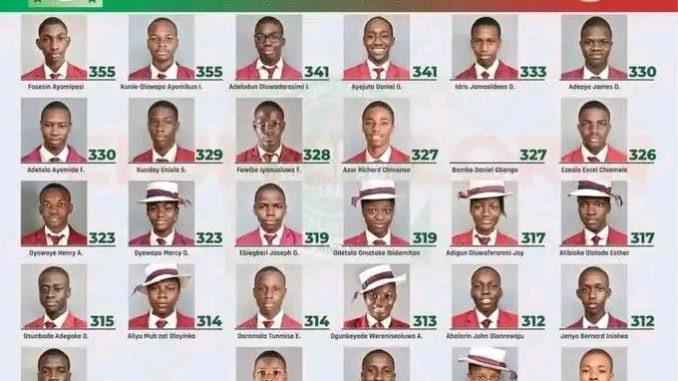Studying efficiently relies on well-organized study notes. If your notes are scattered, illegible, or nonexistent, you’re not making the most of your study time. This guide offers valuable tips on effectively organising your study notes, ensuring you can access crucial information when needed.
Why Organize Study Notes Matters
Before diving into the methods, let’s understand why organizing study notes is essential:
- Time and Effort Saving: An organized note-taking system saves time and effort. Without proper organization, you may waste valuable study time searching for information.
Different Methods to Organize Notes
Effective note-taking and organization methods vary depending on your educational level. Below are methods tailored for high school and college students:
How to Organize School Notes
- Dedicated Notebooks: Use separate notebooks for each class. This prevents confusion and ensures all your notes for a specific subject are in one place.
- Clarity is Key: Write legibly and clearly. Use bullet points, headings, and subheadings to structure your notes, making them easier to read and understand.
- Highlight Important Information: Employ highlighters or coloured pens to emphasize crucial concepts and key terms. This practice helps you quickly locate vital information during study sessions.
- Date Your Notes: Include the date on each page. This ensures you can track when you took notes and which topics were covered on specific dates.
How to Organize College Notes
- Digital Note-Taking: Many college students prefer taking notes on laptops or tablets for speed and organization. Digital notes are easy to store and search through.
- Create Outlines: Before each lecture, outline the material you expect to cover. This structured approach helps you organize your notes more effectively.
- Topic-Based Organization: Organize your notes by topic rather than by date or lecture. This simplifies retrieval when studying for exams.
- Summarize and Condense: Instead of transcribing everything, focus on summarizing and condensing the material. Summaries make it easier to retain essential information.
Organizing Notes for Test Prep and Review
- Summarize Main Ideas: Review your notes and summarize the main ideas and concepts before exams. For efficient studying, use bullet points, headings, and subheadings to structure your notes.
- Flashcards: Create flashcards to memorize key terms, definitions, and concepts. Flashcards are highly effective tools for exam preparation.
- Colour Coding: Color code your notes quickly to find information during study sessions. Different colours can represent various types of information, such as dates, names, and definitions.
- Study Guide: Create a comprehensive study guide that condenses the most crucial information from your notes. Use headings and subheadings to organize the material for easier studying.
- Frequent Review: Consistently review your notes in the days leading up to exams. Daily review reinforces your understanding of the material and ensures thorough preparation.
- Avoid Cramming: Steer clear of last-minute cramming. Instead, spread out your review over several days to improve retention and reduce stress during exams.
Effective Ways to Take Organized Notes
Choosing the right note-taking method is crucial. Here are effective strategies for different situations:
Organizing Notes in a Notebook for School
- Dividers: Use dividers to separate different subjects or topics within your notebook. This helps you quickly locate specific information.
- Color Coding: Highlight different types of information with colored pens or markers. This aids in rapid information retrieval.
- Structured Notes: Use bullet points and headings to break down notes into manageable sections, making them easier to review.
Organizing Typed Notes
- Headings and Subheadings: Organize typed notes with clear headings and subheadings to create a logical structure.
- Bullet Points and Lists: Break information into bullet points or numbered lists for easy digestion during studying.
- Tables and Charts: Use tables and charts to organize complex information for better comprehension.
Organizing Notes on Slides
- Slide Titles: Use slide titles to divide notes into sections or topics for easier navigation.
- Bullet Points: Break down notes with bullet points for clarity and quick review.
- Visual Aids: Incorporate images and diagrams to enhance understanding and retention.
Organizing Notes Using Acrobat Tools
- PDF Separation: Create separate PDF files for each class to keep notes organized by subject.
- Internal Links: Utilize internal links to connect different sections of your notes, improving navigation.
- Numbered Pages: Number pages to maintain order and facilitate precise information retrieval.
- Highlighting and Annotation: Use highlighting and annotation tools to mark important information for future review.
Top Tips for Organizing Notes
- Clear Labeling: Maintain a consistent labelling format for your notes, including the date, class, and topic. This ensures you can quickly locate specific content.
- Choose Your Method: Find the note-taking method that best suits your learning style, whether handwritten notes in separate notebooks or digital notes on a computer.
- Structured Approach: Develop a note-taking structure that aligns with your organization’s system. Ensure it helps you internalize information while making retrieval efficient.
- Start Now: It’s never too late to organise your notes effectively. Implement these organizational habits moving forward, and consider backfilling past notes into your system once you have a solid process.
In conclusion, effective note-taking and organization are critical for successful studying. Tailor your approach to your educational level and preferences, and maintain consistency in your organization system. Well-organized study notes are the key to studying smarter, not harder.









